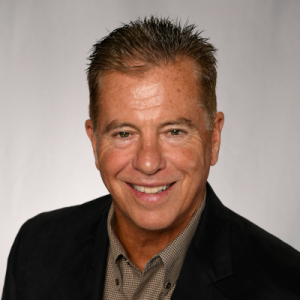In the life sciences industry, maintaining temperature integrity during product transit is non-negotiable. Whether shipping biologics, vaccines, or temperature-sensitive therapies, cold chain logistics must be reliable, compliant—and increasingly—sustainable. As environmental, social, and governance (ESG) considerations become a focal point for pharmaceutical manufacturers, the materials used in cold chain packaging are coming under scrutiny.
Expanded polystyrene (EPS), while effective, is a petroleum-based material that is difficult to recycle, non-compostable, and contributes significantly to landfill waste. In response, the industry is turning to bio-based, compostable materials like Green Cell Foam (GCF) as a credible and environmentally responsible alternative.
Rethinking EPS: Why Sustainability Matters in Cold Chain
EPS has long been a mainstay in cold chain shipping due to its insulation properties. However, its environmental footprint is staggering:
- Non-biodegradable: EPS can take hundreds of years to decompose in landfills.
- Difficult to recycle: Most municipal recycling programs do not accept EPS.
- Derived from fossil fuels: EPS production is energy-intensive and reliant on non-renewable resources.
These issues conflict with emerging sustainability mandates and ESG frameworks. For pharmaceutical brands committed to corporate responsibility and climate targets, EPS is quickly becoming obsolete.
Compostable Innovation: What Sets Green Cell Foam Apart
Green Cell Foam (GCF) and its enhanced variant, Green Cell Plus (GCP), offer a viable alternative to EPS, with proven thermal protection and significantly reduced environmental impact.
Key Environmental Benefits
- Biodegradable & Compostable:
- Certified by the Biodegradable Products Institute (BPI)
- Breaks down in under 60 days in composting conditions
- Can even dissolve safely in water at the end of use
- Lower Carbon Footprint:
- Manufactured from U.S.-grown, non-GMO corn
- Reduced greenhouse gas emissions compared to petrochemical-based EPS
- Lower non-renewable energy use during production
- Reduced Waste Generation:
- Diverts waste from landfills
- Supports circular economy goals in packaging
- Safe & Non-Toxic Disposal:
- Unlike EPS, GCF poses no microplastic or chemical leaching risks
- Suitable for home composting or municipal industrial compost systems
Performance Without Compromise
Sustainability is only half the equation—performance still matters. Green Cell Foam matches EPS in thermal protection, ensuring safe temperatures for over 48 hours based on ISTA-certified testing. Its rigid structure provides insulation and shock absorption, protecting products ranging from injectables to biologics during transit.
This makes it suitable for:
- Clinical trial kits
- Direct-to-patient deliveries
- Specialty pharmacy shipments
- Cold chain sampling programs
Aligning with ESG Goals and Regulatory Trends
Governments, investors, and consumers are all placing greater emphasis on ESG performance:
- Regulatory Pressure: States like California and New York are enacting bans and restrictions on EPS.
- Investor Expectations: Environmental impact is now a key consideration in pharmaceutical ESG ratings.
- Consumer Demand: Stakeholders are increasingly favoring brands that demonstrate visible sustainability efforts.
Adopting compostable cold chain solutions reflects a commitment to these evolving standards while differentiating brands in the market.
Key Takeaways
- EPS alternatives like Green Cell Foam meet both environmental and thermal performance requirements for cold chain shipping.
- Compostable packaging reduces landfill waste, lowers carbon emissions, and aligns with ESG frameworks.
- Pharma companies can improve sustainability scores and stakeholder trust by phasing out EPS in favor of renewable materials.
- Thermal integrity is not compromised, making these options viable for temperature-sensitive pharmaceutical shipments.
Call to Action
Is your cold chain packaging strategy aligned with your company’s sustainability goals?
QPharma helps pharmaceutical manufacturers integrate sustainable packaging solutions into their cold chain logistics—while ensuring regulatory compliance, product integrity, and operational efficiency.
🌱 Visit qpharmacorp.com to learn how our environmentally responsible packaging solutions and cold chain services can support your ESG goals and product performance needs.












